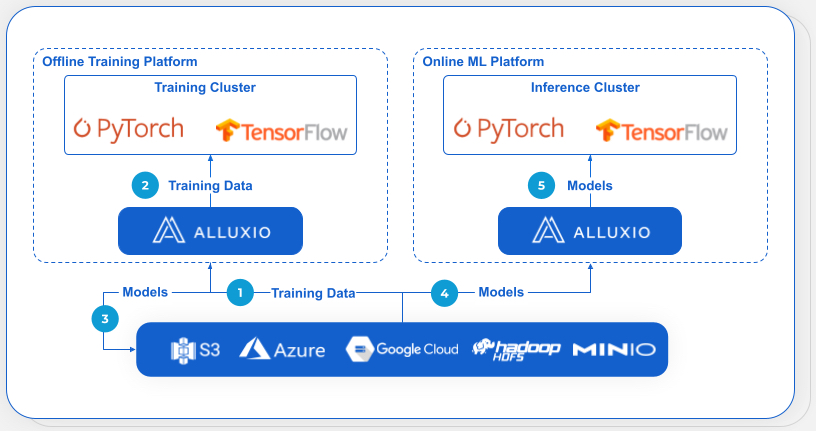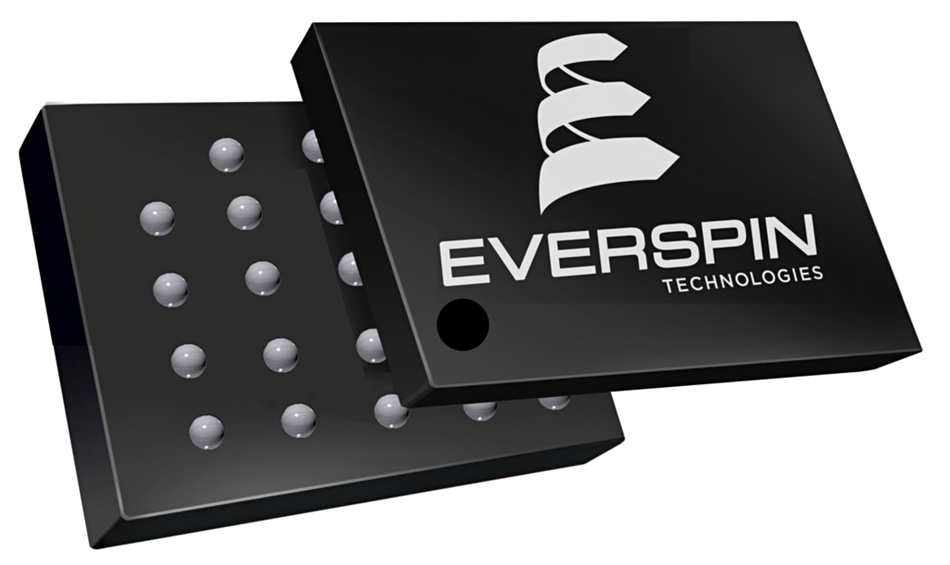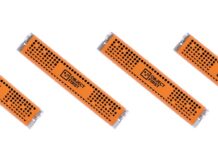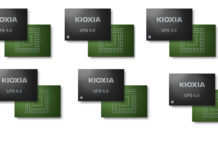It’s the season for reports as suppliers try to pump up their relevance in a crowded market.
…
Alluxio introduced Alluxio Enterprise AI, a high-performance data platform for making data available to AI. Alluxio has developed open source data store virtualization software, a virtual distributed file system with multi-tier caching. Alluxio Enterprise AI is a new product that builds on the previous Alluxio Enterprise Editions with a new architecture optimized for AI/ML workloads. It has has a distributed system architecture with decentralized metadata to eliminate bottlenecks when accessing massive numbers of small files, typical of AI workloads. A distributed cache is tailored to AI workload I/O patterns, unlike traditional analytics. The product supports analytics and full machine learning pipelines – from ingestion to ETL, pre-processing, training, and serving. The enhanced set of APIs for model training can deliver up to 20x performance over commodity storage.

To integrate Alluxio with the existing platform, users can deploy an Alluxio cluster between compute engines and storage systems. On the compute engine side, Alluxio integrates with popular machine learning frameworks like PyTorch, Apache Spark, TensorFlow and Ray. Enterprises can integrate Alluxio with these compute frameworks via REST API, POSIX API or S3 API. On the storage side, Alluxio connects with all types of filesystems or object storage in any location, whether on-premises, in the cloud, or both. Supported storage systems include Amazon S3, Google GCS, Azure Blob Storage, MinIO, Ceph, HDFS, and more.
Alluxio works on both on-premise and cloud, either bare-metal or containerized environments. Supported cloud platforms include AWS, GCP, and Azure Cloud.
Find out more here.
…
Data protector Asigra says the SaaS app backup market will grow to $232 billion by 2024.
…
A Commvault commissioned IDC report surveyed 500+ security and IT operations leaders worldwide to show a current view of how organisations are perceiving modern security threats and approaching cyber resilience. It found:
- Only 33 percent of CEOs/Managing Directors and 21 percent of line-of-business leaders are highly involved in cyber preparedness
- 61 percent believe that data loss within the next 12 months due to increasingly sophisticated attacks is “likely” to “very likely”
- Exfiltration attacks occur almost 50 percent more often than encryption attacks, whilst phishing was ranked as the most concerning threat to address
- 57 percent of organisations have limited automation for key functions; only 22 percent report being fully automated
…
Data lakehouse supplier Dremio published an academic paper with arXiv, titled “The Data Lakehouse: Data Warehousing and More,” exploring the data lakehouse model. It says the idea through this preprint publication is to gather feedback from the open source research and scientific community and make it available to the wider community of practitioners. Get the paper here.

…
Everspin is expanding its high-density EMxxLX STT-MRAM product family. The extended family of devices are now available in densities from 4 to 64 megabits with new, smaller packaging for the 4-to-16-megabit products. The EMxxLX, announced last year is the only commercially available persistent memory with a full read and write bandwidth of 400 megabytes per second via eight I/O signals with a clock frequency of 200MHz.
…
NetApp released its 2023 Data Complexity Report with a focus on business need for unified data storage. It found that, of all tech executives with plans to migrate workloads to the cloud, three out of four still have most of their workloads stored on-premises. However, AI adoption is the biggest driver for cloud migration, and cloud is a major enabler for AI adoption. Seventy-four percent of respondents said they’re using public cloud services for AI and analytics. Tech executives globally (39 percent) say their top need for Flash innovation is to optimize AI performance, cost and efficiency. Get a copy here.
…

Recovering and now private equity-owned storage array supplier Nexsan announced Victoria Grey and Andy Hill are returning to the company as CMO and EVP of Sales Worldwide, respectively. Nexsan was purchased by Serene Investment Management earlier this year and it appointed Dan Shimmerman as CEO. Since then, we’re told, it has achieved positive operational cashflow and increases in both sales and profitability. Grey returns to Nexsan for the third time, having previously served as CMO in 2016-2017 and Senior VP of Marketing in 2010-2013. She has held marketing executive, leadership. and advisory positions at FalconStor, APARAVI, GridStore (HyperGrid), Quantum, and Dell EMC. Hill previously served as Nexsan’s EVP Sales, Europe, Middle East & Africa from 2006-2013, and has held executive sales leadership positions at Sequent, VERITAS, Komprise and Virtuozzo.
…
Nyriad’s GPU-accelerated storage controller array product is now available as a service. The company announced UltraIO-as-a-Service, an on-premise Storage-as-a-Service (STaaS) offering. The user experience is defined by three decisions: Contract Term, Data Services and Reserve Commitment. From there, Nyriad and its resellers handle implementation and ongoing 24/7/365 proactive monitoring, alerting and customer support. There is real-time flexibility to increase the Reserve Capacity throughout the term as business needs evolve. Customers can scale the Reserve Capacity back down within the term as long as it remains above the initial contracted amount. To learn more visit: www.nyriad.io/staas.

…
Data protector Rubrik has appointed Ismail Elmas as Group VP of International Business. He joins after a four-year stint at Zscaler following periods at AppDynamics and BMC Software.
…
Wells Fargo analyst Aaron Rakers tells subscribers regarding Seagate and Western Digital nearline disk ships: ”We expect STX (and WDC) to point to some signs of a nearline recovery (albeit slow) looking forward. … We think investors have become increasingly focused on the risk of accelerating Flash cannibalization driven by significant Flash price declines (albeit now trending higher), increasing eSSD Flash density (e.g. Pure Storage roadmap), and the insertion of AI (i.e., data velocity).”
…
Scality announced the integration of its RING object storage with VMware Cloud Director. It has become the first S3 object storage vendor to become an OSIS-compliant partner for VMware Cloud Director. VMware created OSIS (Object Storage Interoperability Service) to help partners integrate with VMware’s existing Object Storage Extension (OSE) platform. Plug-and-play interoperability between Scality RING and VMware Cloud Director can be used to operate new object storage services for a range of data protection workloads, helping service providers increase revenue streams from advanced storage services without a huge engineering lift.
It says that, by using new Scality RING OSIS Adapter, Scality delivers rapid deployment of a variety of object storage service offerings that include: Storage-as-a-Service (STaaS), Backup-as-a-Service (BaaS), and Ransomware-protection-as-a-Service (RPaaS).
…
Block storage software supplier StorMagic announced a SaaS tool so admins can monitor and manage their SvSAN clusters globally. StorMagic Edge Control simplifies day-to-day SvSAN cluster administration, reducing the time admins spend managing their edge sites, whether they are using VMware, Microsoft or KVM hypervisors. SvSAN customers can download and begin using the software immediately, free of charge.
…
Veritas research that shows 45 percent of organizations may be miscalculating the severity of threats to their business. The study, Data Risk Management: The State of the Market – Cyber to Compliance, which polled 1,600 executives and IT practitioners across 13 global markets, provides insights into the most pressing risks, their impacts and how organizations plan to navigate them. When survey respondents were initially asked whether their organizations were currently at risk, almost half (48 percent) said no. But, after being presented with a list of individual risk factors, respondents of all levels recognized the challenges facing their organizations with 97 percent then identifying a risk. 15 percent of all those surveyed did not believe their organizations could survive another 12 months, given the risks they currently face. Download your copy here.
…
Weebit Nano signed its second foundry agreement after Skywater, licensing its back-end-of-line (BEOL) ReRAM technology IP to DB HiTek, a contract chip manufacturer. DB HiTek will offer Weebit ReRAM as embedded non-volatile memory (NVM) in its 130nm BCD process – used for many analog, mixed-signal and power designs. The integration of ReRAM in BCD will allow analog, power and mixed-signal designers to increase system integration, integrating power management monolithically with an MCU and NVM. Weebit will receive manufacturing license fees, project use fees and royalties based on production volumes.








